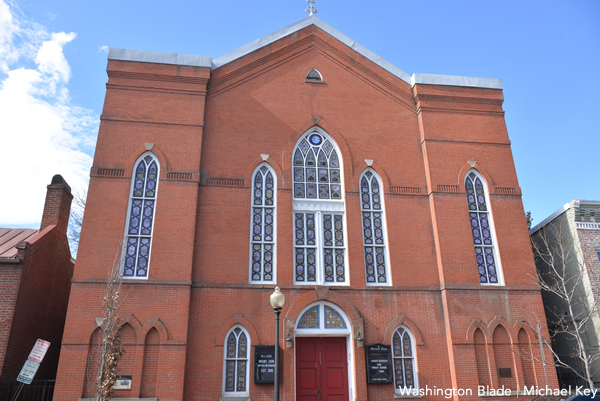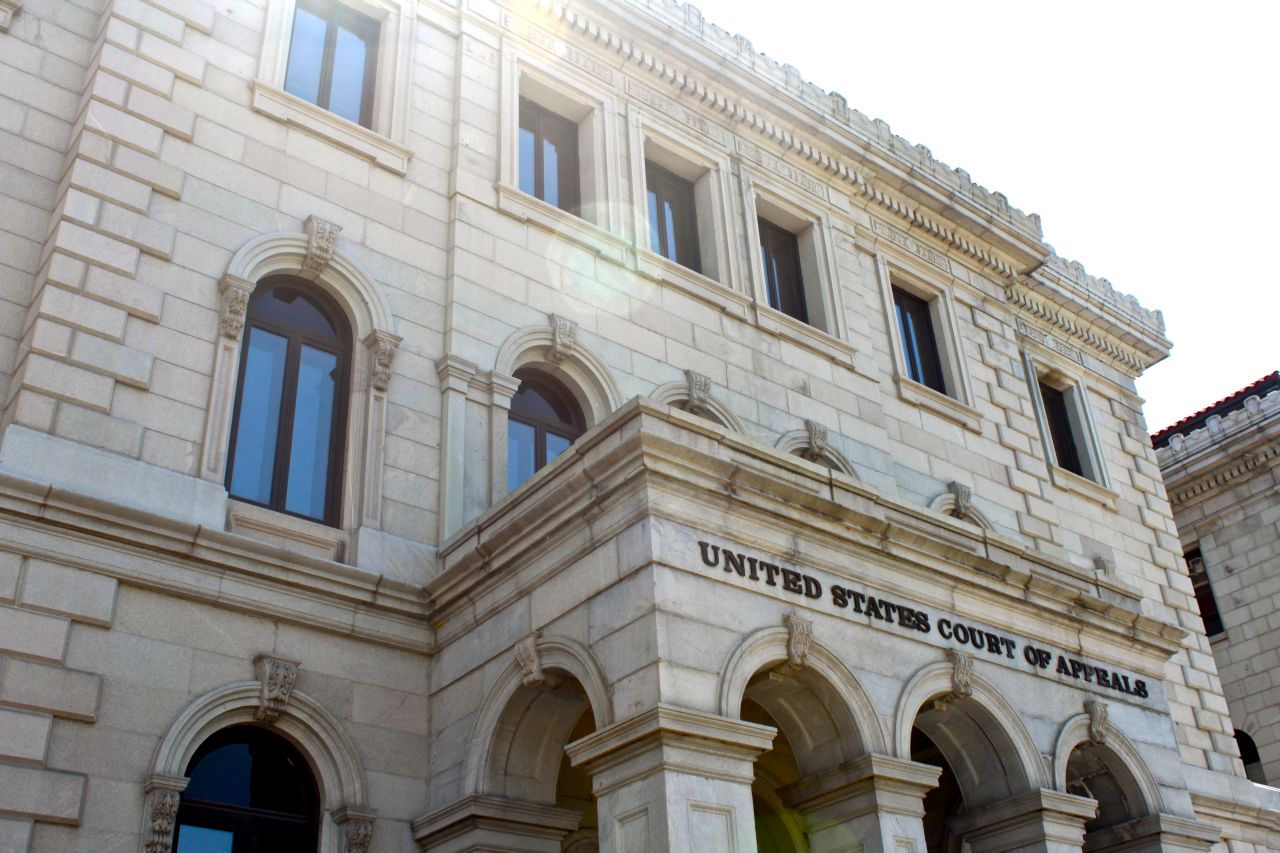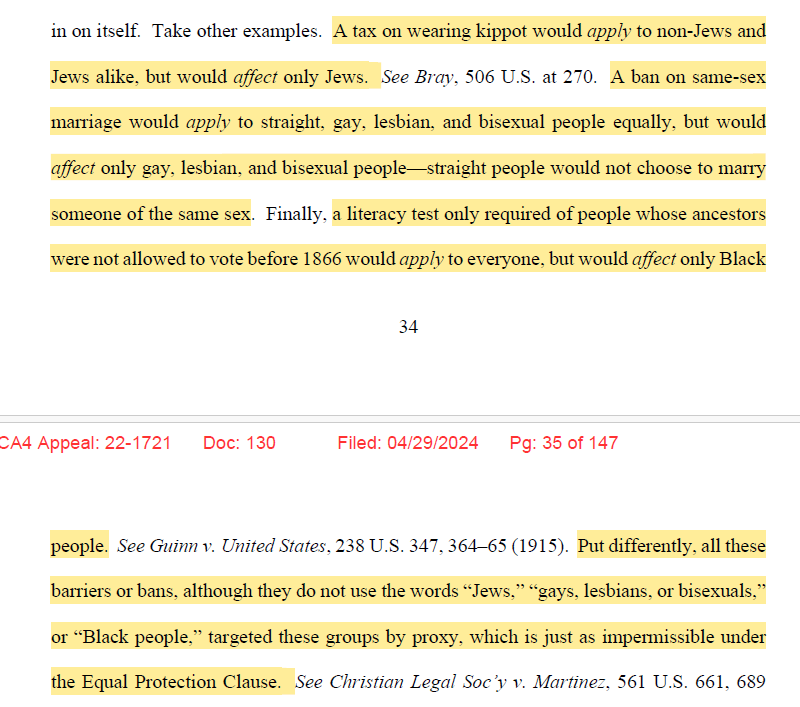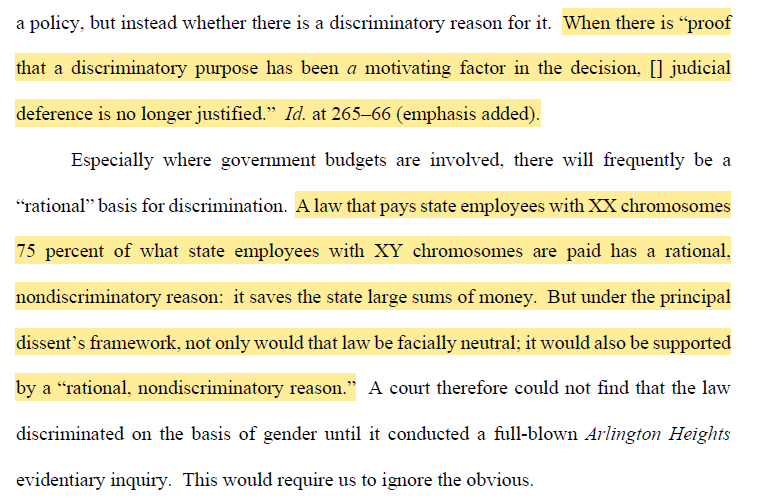National
National news in brief: November 11
Annise Parker will return as Houston’s mayor, nation’s first out gay Republican African American mayor elected, and more on election night

Parker wins re-election as Houston mayor
HOUSTON — The lesbian mayor of Houston will not face a run-off after receiving 51 percent of the vote on Tuesday.
Houston became America’s largest city with an openly gay mayor in 2009 with the election of Annise Parker, the former city controller. In Tuesday’s race, Parker faced five opponents, making her one-round majority victory a notable achievement. Parker will be eligible to campaign for one more two-year term after this term is up in 2013.
Houston also elected to a brand new city council district openly gay attorney Mike Laster, the first openly gay man elected to city council, following Parker who became the first openly lesbian Houston City Council member in 1997. However, transgender Houston City Council candidate Jenifer Rene Pool did not join Parker and Laster in celebrating wins on Tuesday.
Holyoke elects nation’s youngest gay mayor
HOLYOKE, Mass. — A Springfield suburb of nearly 40,000 people elected the nation’s youngest openly gay mayor Tuesday.
ALSO FROM THE BLADE: GAY HERO AT GIFFORDS SHOOTING ELECTED TO ARIZ. SCHOOL BOARD
Alex Morse, 22, is a graduate of Brown University with a degree in urban studies, and — according to his campaign site — is the first college graduate in his family. According to the Gay & Lesbian Victory Fund, Morse founded ‘Holyoke for All,’ the city’s first LGBT non-profit organization, and was a member of the Massachusetts Governor’s LGBT Commission. Morse was also mentored by former Providence, R.I. Mayor and current Congressman David Cicilline.
Also Tuesday night, Chatham Borough, N.J. elected Bruce Harris mayor. He is likely the nation’s first openly gay, African-American Republican mayor, according to the Victory Fund.
Lesbian prevails in Charlotte Council race
CHARLOTTE — LaWana Mayfield made history Tuesday night, becoming the first openly LGBT city council member in Charlotte history.
According to North Carolina LGBT newspaper, QNotes, Democrat Mayfield defeated Republican Ed Toney 78-22 percent. She defeated controversial incumbent Democrat Warren Turner, who had been accused of sexual harassment last year by several female city employees.
In addition to Mayfield’s election, LGBT blog Pam’s House Blend is reporting anti-gay Durham N.C. mayoral candidate, Pastor Sylvester Williams was soundly defeated by incumbent Bill Bell. Williams is a major backer of an expected 2012 ballot initiative amending the N.C. Constitution to ban marriage for same-sex couples, and campaigned on a strong anti-gay platform.
ALSO FROM THE BLADE: VICTORY IN IOWA BLOW TO OPPONENTS OF SAME-SEX MARRIAGE RIGHTS
Traverse City to retain LGBT non-bias ordinance
TRAVERSE CITY, Mich. — Residents of the northwest Michigan resort town of Traverse City voted by a 2-to-1 margin to retain a nondiscrimination ordinance containing explicit protections for LGBT citizens.
“The people of Traverse City have sent a clear message that they value their LGBT friends, neighbors, co-workers and family members and don’t want to see them left vulnerable to discrimination,” National Gay and Lesbian Task Force executive director, Rea Carey, said in a statement. “This victory creates a stronger and more welcoming city not only for LGBT people and their families, but for everyone.”
Gay candidates win big in local elections
WASHINGTON — A slew of LGBT election night wins swept the nation Tuesday night, with key city council wins in a handful of states.
Bilerico.com, an LGBT blog, announced late Tuesday Zach Adamson’s win in the at-large Indianapolis city council election, becoming the city’s first openly gay city council members. Adamson — a board member with Indiana Stonewall Democrats — was one of three openly gay candidates on the Indianapolis city council ballot, but appears to be the only candidate to cross the finish line.
LGBT activists are calling Michael Smith’s defeat of Largo, Fla., incumbent city commissioner Mary Gray Black a double sweet victory. Black led an effort to fire transgender former city manager Susan Stanton, who had been city manager for more than 14 years until her 2007 termination after announcing she was transitioning.
The Gay and Lesbian Victory Fund also announced the election of Fund-endorsed candidate and out lesbian, Caitlin Copple to the Missoula, Mont. City Council, defeating an incumbent who voted against an LGBT non-discrimination ordinance. Also winning city council elections Tuesday night were openly gay candidates Chris Seelbach in Cincinnati and Ryan Mello in Tacoma, Wash.
READ MORE FOR LOCAL LGBT ELECTION NIGHT VICTORIES
National
United Methodist Church removes 40-year ban on gay clergy
Delegates also voted for other LGBTQ-inclusive measures

The United Methodist Church on Wednesday removed a ban on gay clergy that was in place for more than 40 years, voting to also allow LGBTQ weddings and end prohibitions on the use of United Methodist funds to “promote acceptance of homosexuality.”
Overturning the policy forbidding the church from ordaining “self-avowed practicing homosexuals” effectively formalized a practice that had caused an estimated quarter of U.S. congregations to leave the church.
The New York Times notes additional votes “affirming L.G.B.T.Q. inclusion in the church are expected before the meeting adjourns on Friday.” Wednesday’s measures were passed overwhelmingly and without debate. Delegates met in Charlotte, N.C.
According to the church’s General Council on Finance and Administration, there were 5,424,175 members in the U.S. in 2022 with an estimated global membership approaching 10 million.
The Times notes that other matters of business last week included a “regionalization” plan, which gave autonomy to different regions such that they can establish their own rules on matters including issues of sexuality — about which international factions are likelier to have more conservative views.
Rev. Kipp Nelson of St. Johns’s on the Lake Methodist Church in Miami shared a statement praising the new developments:
“It is a glorious day in the United Methodist Church. As a worldwide denomination, we have now publicly proclaimed the boundless love of God and finally slung open the doors of our church so that all people, no matter their identities or orientations, may pursue the calling of their hearts.
“Truly, all are loved and belong here among us. I am honored to serve as a pastor in the United Methodist Church for such a time as this, for our future is bright and filled with hope. Praise be, praise be.”
Federal Government
Republican state AGs challenge Biden administration’s revised Title IX policies
New rules protect LGBTQ students from discrimination

Four Republicans state attorneys general have sued the Biden-Harris administration over the U.S. Department of Education’s new Title IX policies that were finalized April 19 and carry anti-discrimination protections for LGBTQ students in public schools.
The lawsuit filed on Tuesday, which is led by the attorneys general of Kentucky and Tennessee, follows a pair of legal challenges from nine Republican states on Monday — all contesting the administration’s interpretation that sex-based discrimination under the statute also covers that which is based on the victim’s sexual orientation or gender identity.
The administration also rolled back Trump-era rules governing how schools must respond to allegations of sexual harassment and sexual assault, which were widely perceived as biased in favor of the interests of those who are accused.
“The U.S. Department of Education has no authority to let boys into girls’ locker rooms,” Tennessee Attorney General Jonathan Skrmetti said in a statement. “In the decades since its adoption, Title IX has been universally understood to protect the privacy and safety of women in private spaces like locker rooms and bathrooms.”
“Florida is suing the Biden administration over its unlawful Title IX changes,” Florida Gov. Ron DeSantis wrote on social media. “Biden is abusing his constitutional authority to push an ideological agenda that harms women and girls and conflicts with the truth.”
After announcing the finalization of the department’s new rules, Education Secretary Miguel Cardona told reporters, “These regulations make it crystal clear that everyone can access schools that are safe, welcoming and that respect their rights.”
The new rule does not provide guidance on whether schools must allow transgender students to play on sports teams corresponding with their gender identity to comply with Title IX, a question that is addressed in a separate rule proposed by the agency in April.
LGBTQ and civil rights advocacy groups praised the changes. Lambda Legal issued a statement arguing the new rule “protects LGBTQ+ students from discrimination and other abuse,” adding that it “appropriately underscores that Title IX’s civil rights protections clearly cover LGBTQ+ students, as well as survivors and pregnant and parenting students across race and gender identity.”
Federal Government
4th Circuit rules gender identity is a protected characteristic
Ruling a response to N.C., W.Va. legal challenges

BY ERIN REED | The 4th U.S. Circuit Court of Appeals ruled Monday that transgender people are a protected class and that Medicaid bans on trans care are unconstitutional.
Furthermore, the court ruled that discriminating based on a diagnosis of gender dysphoria is discrimination based on gender identity and sex. The ruling is in response to lower court challenges against state laws and policies in North Carolina and West Virginia that prevent trans people on state plans or Medicaid from obtaining coverage for gender-affirming care; those lower courts found such exclusions unconstitutional.
In issuing the final ruling, the 4th Circuit declared that trans exclusions were “obviously discriminatory” and were “in violation of the equal protection clause” of the Constitution, upholding lower court rulings that barred the discriminatory exclusions.
The 4th Circuit ruling focused on two cases in states within its jurisdiction: North Carolina and West Virginia. In North Carolina, trans state employees who rely on the State Health Plan were unable to use it to obtain gender-affirming care for gender dysphoria diagnoses.
In West Virginia, a similar exclusion applied to those on the state’s Medicaid plan for surgeries related to a diagnosis of gender dysphoria. Both exclusions were overturned by lower courts, and both states appealed to the 4th Circuit.
Attorneys for the states had argued that the policies were not discriminatory because the exclusions for gender affirming care “apply to everyone, not just transgender people.” The majority of the court, however, struck down such a claim, pointing to several other cases where such arguments break down, such as same-sex marriage bans “applying to straight, gay, lesbian, and bisexual people equally,” even though straight people would be entirely unaffected by such bans.
Other cases cited included literacy tests, a tax on wearing kippot for Jewish people, and interracial marriage in Loving v. Virginia.
See this portion of the court analysis here:

Of particular note in the majority opinion was a section on Geduldig v. Aiello that seemed laser-targeted toward an eventual U.S. Supreme Court decision on discriminatory policies targeting trans people. Geduldig v. Aiello, a 1974 ruling, determined that pregnancy discrimination is not inherently sex discrimination because it does not “classify on sex,” but rather, on pregnancy status.
Using similar arguments, the states claimed that gender affirming care exclusions did not classify or discriminate based on trans status or sex, but rather, on a diagnosis of gender dysphoria and treatments to alleviate that dysphoria.
The majority was unconvinced, ruling, “gender dysphoria is so intimately related to transgender status as to be virtually indistinguishable from it. The excluded treatments aim at addressing incongruity between sex assigned at birth and gender identity, the very heart of transgender status.” In doing so, the majority cited several cases, many from after Geduldig was decided.
Notably, Geduldig was cited in both the 6th and 11th Circuit decisions upholding gender affirming care bans in a handful of states.
The court also pointed to the potentially ridiculous conclusions that strict readings of what counts as proxy discrimination could lead to, such as if legislators attempted to use “XX chromosomes” and “XY chromosomes” to get around sex discrimination policies:
Importantly, the court also rebutted recent arguments that Bostock applies only to “limited Title VII claims involving employers who fired” LGBTQ employees, and not to Title IX, which the Affordable Care Act’s anti-discrimination mandate references. The majority stated that this is not the case, and that there is “nothing in Bostock to suggest the holding was that narrow.”
Ultimately, the court ruled that the exclusions on trans care violate the Equal Protection Clause of the Constitution. The court also ruled that the West Virginia Medicaid Program violates the Medicaid Act and the anti-discrimination provisions of the Affordable Care Act.
Additionally, the court upheld the dismissal of anti-trans expert testimony for lacking relevant expertise. West Virginia and North Carolina must end trans care exclusions in line with earlier district court decisions.
The decision will likely have nationwide impacts on court cases in other districts. The case had become a major battleground for trans rights, with dozens of states filing amicus briefs in favor or against the protection of the equal process rights of trans people. Twenty-one Republican states filed an amicus brief in favor of denying trans people anti-discrimination protections in healthcare, and 17 Democratic states joined an amicus brief in support of the healthcare rights of trans individuals.
Many Republican states are defending anti-trans laws that discriminate against trans people by banning or limiting gender-affirming care. These laws could come under threat if the legal rationale used in this decision is adopted by other circuits. In the 4th Circuit’s jurisdiction, West Virginia and North Carolina already have gender-affirming care bans for trans youth in place, and South Carolina may consider a similar bill this week.
The decision could potentially be used as precedent to challenge all of those laws in the near future and to deter South Carolina’s bill from passing into law.
The decision is the latest in a web of legal battles concerning trans people. Earlier this month, the 4th Circuit also reversed a sports ban in West Virginia, ruling that Title IX protects trans student athletes. However, the Supreme Court recently narrowed a victory for trans healthcare from the 9th U.S. Circuit Court of Appeals and allowed Idaho to continue enforcing its ban on gender-affirming care for everyone except the two plaintiffs in the case.
Importantly, that decision was not about the constitutionality of gender-affirming care, but the limits of temporary injunctions in the early stages of a constitutional challenge to discriminatory state laws. It is likely that the Supreme Court will ultimately hear cases on this topic in the near future.
Celebrating the victory, Lambda Legal Counsel and Health Care Strategist Omar Gonzalez-Pagan said in a posted statement, “The court’s decision sends a clear message that gender-affirming care is critical medical care for transgender people and that denying it is harmful and unlawful … We hope this decision makes it clear to policy makers across the country that health care decisions belong to patients, their families, and their doctors, not to politicians.”
****************************************************************************

Erin Reed is a transgender woman (she/her pronouns) and researcher who tracks anti-LGBTQ+ legislation around the world and helps people become better advocates for their queer family, friends, colleagues, and community. Reed also is a social media consultant and public speaker.
******************************************************************************************
The preceding article was first published at Erin In The Morning and is republished with permission.


















